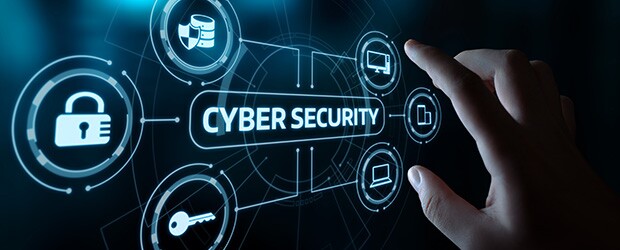Describing the Digital communication on Interpersonal relationships
Before delving into the effects of digital communication on interpersonal relationships, let's take a moment to the incredible journey.

The digital communication has become an integral part of our daily lives, affecting the way we connect with friends, family, and even strangers.
In this blog post, we will explore the various dimensions of the impact of digital communication on interpersonal relationships, examining both the positive and negative aspects of this technological evolution.
The Evolution of Digital Communication
Before delving into the effects of digital communication on interpersonal relationships, let's take a moment to appreciate the incredible journey that communication has undergone. From the days of sending handwritten letters that took weeks to arrive at their destination to the instantaneous messaging of today, the transformation has been nothing short of revolutionary.
Digital communication encompasses a wide range of tools and platforms, including text messaging, email, social media, video calls, and more. These technologies have not only changed the speed and convenience of communication but have also altered the very nature of our interactions.
The Positive Impact on Digital communication
- Enhanced Connectivity: Perhaps the most obvious benefit of digital communication is the way it has connected people across geographical boundaries. Long-distance relationships, both romantic and platonic, have been strengthened by the ability to maintain real-time conversations, share updates, and see each other through video calls.
- Convenience: Digital communication offers unparalleled convenience. No longer do we have to wait for days for a letter to arrive or spend hours on the phone. With a few taps on a screen, we can reach out to someone instantly, making coordination and planning much easier.
- Expanded Social Networks: Social media platforms like Facebook, Twitter, Instagram, and LinkedIn have expanded our ability to connect with a wide range of people. We can maintain connections with acquaintances, reconnect with old friends, and even form new friendships based on shared interests.
- Emotional Support: In times of need, digital communication provides a lifeline for emotional support. We can turn to friends and family for comfort, advice, or simply to vent our feelings, knowing they are just a message away.
- Accessibility: Digital communication has also made communication more accessible for individuals with disabilities. Text-to-speech, speech-to-text, and other assistive technologies have empowered people to engage in conversations regardless of their physical limitations.
The Negative Impact
While digital communication has brought about many positive changes, it's important to recognize that it's not without its downsides. Here are some of the negative impacts on interpersonal relationships:
- Superficial Connections: The ease of connecting online can lead to superficial relationships. People may have thousands of "friends" on social media but lack deep, meaningful connections with a few close individuals.
- Miscommunication: Digital communication often lacks the nuances of face-to-face interaction. Misunderstandings and misinterpretations are common, leading to conflicts that might not have arisen in a face-to-face conversation.
- Digital Overload: The constant barrage of messages and notifications can be overwhelming. People may feel pressured to be constantly available, leading to stress and a sense of being "on call" 24/7.
- Privacy Concerns: Sharing personal information online can lead to privacy concerns. The line between public and private life can blur, and incidents of cyberbullying and online harassment can impact mental health.
- Reduced Empathy: Text-based communication can sometimes strip conversations of the emotional context that facial expressions and body language provide. This can reduce empathy and make it easier to say hurtful things without realizing their impact.
Balancing Digital and Physical Communication
As we navigate the digital age, it's crucial to find a balance between digital and physical communication to maintain healthy interpersonal relationships. Here are some tips for achieving this equilibrium:
- Prioritize Face-to-Face Interaction: Whenever possible, opt for face-to-face conversations, especially for important discussions or emotional connections. In-person interactions provide the richest communication experience.
- Set Boundaries: Establish clear boundaries for digital communication. Let your friends and family know when you're available and when you need time offline. Don't feel obligated to respond to messages immediately.
- Practice Active Listening: When engaging in digital conversations, practice active listening. Ask clarifying questions if something is unclear and be mindful of the tone and emotions behind the messages.
- Use Emojis and GIFs Thoughtfully: Emojis and GIFs can add emotional context to text-based messages. Use them thoughtfully to convey your feelings and intentions accurately.
- Step Away from Screens: Make time to disconnect from screens regularly. Engage in activities that promote physical and mental well-being, such as exercise, hobbies, and spending quality time with loved ones.
- Protect Your Privacy: Be mindful of the information you share online. Review your privacy settings on social media platforms and use strong, unique passwords to protect your digital accounts.
- Seek Professional Help: If you or someone you know is experiencing the negative impacts of digital communication on mental health, consider seeking professional help. Therapists and counselors can provide guidance and support.
The Future of Interpersonal Relationships
As technology continues to evolve, so too will its impact on interpersonal relationships. Virtual reality, augmented reality, and other emerging technologies may further blur the line between physical and digital interaction. It's essential to adapt to these changes while remaining mindful of the importance of genuine, meaningful connections.
In conclusion, digital communication has revolutionized the way we connect with others, both positively and negatively. While it has enhanced connectivity, convenience, and emotional support, it has also led to superficial relationships, miscommunication, and privacy concerns.
Finding a balance between digital and physical communication is key to maintaining healthy interpersonal relationships in the digital age.
By being mindful of the way we communicate and the impact it has on our connections with others, we can navigate this evolving landscape while nurturing meaningful relationships.
What's Your Reaction?















